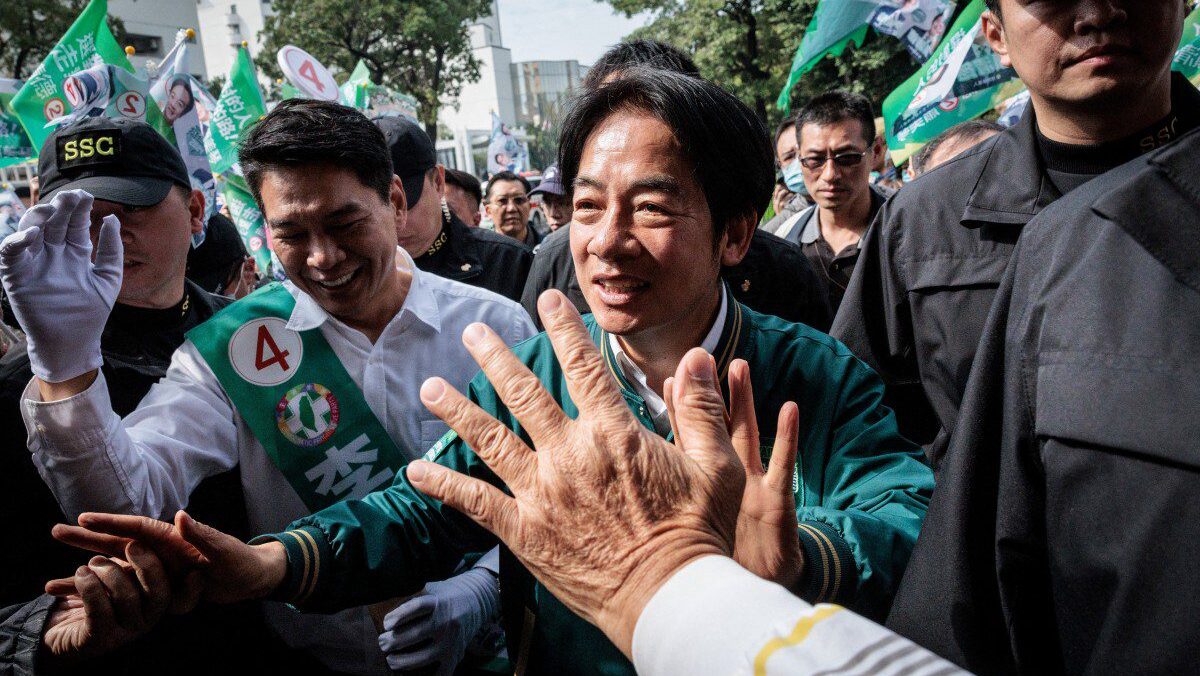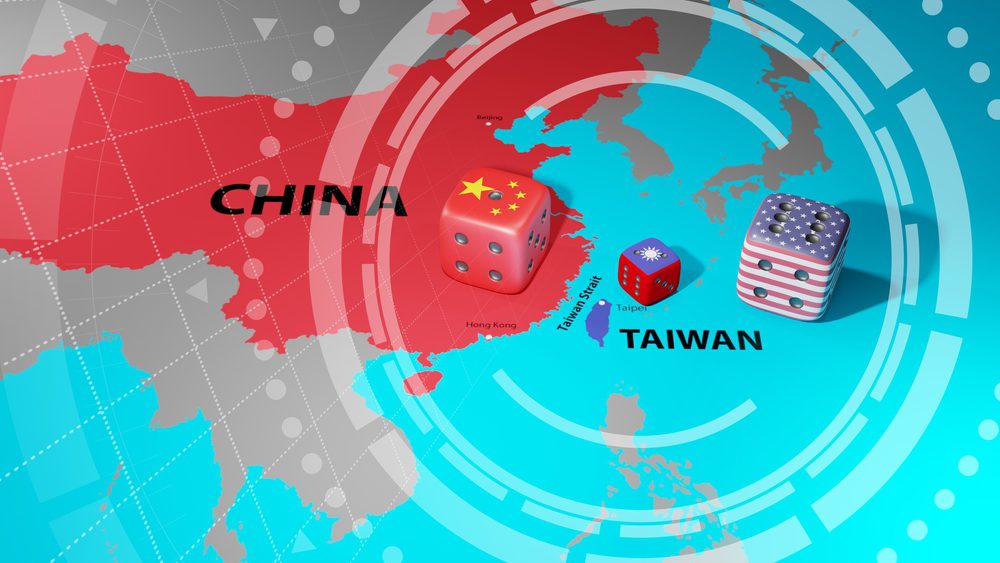
Taiwan Vice President and presidential candidate of the ruling Democratic Progressive Party (DPP) Lai Ching-te on the campaign trail.
Photo: YASUYOSHI CHIBA / AFP
On Saturday, the Taiwanese will choose their next president, vice president, and legislative representatives. Amid heightened tensions in the Taiwan Strait with China—whose Communist Party lays claim to the island—the vote is shaping up to be critical.
As recently as late December, in Chinese President Xi Jinping’s New Year’s Address, Beijing reiterated its long-held ambition to integrate Taiwan and its 23 million citizens into its political structure—if necessary, using the military option.

While a stagnant economy, the high cost of housing, and the future of the island’s energy policies are key domestic issues for Taiwan, its relationship with China looms large over the proceedings.
Taiwan’s political trajectory is of concern to the West since the island produces over 60% of the world’s semiconductors and over 90% of the most advanced ones that power everything from mobile phones to electric cars. However, its relationship with mainland China may be of even more consequence to the rest of the world.
Three choices for president, each with a different vision of how to engage with mainland China, lie before the millions of Taiwanese expected to vote.
Lai Ching-te (a.k.a. William Lai), Taiwan’s current vice president of the ruling U.S.-friendly Democratic Progressive Party (DPP), has been leading in the polls for months. Lai is a fervent supporter of Taiwanese self-rule and roundly rejects Beijing’s autocratic model.
A ‘routine’ transit stop in New York last August by Lai landed him and his party in hot water, given that Beijing deems such visits by Taiwan officials as acts of provocation. A month earlier, during a campaign event, Lai expressed the hope that one day, a Taiwanese president could enter the White House and shake hands with the U.S. president, just like the leaders of Japan or South Korea. “Then the political goal we are pursuing would be achieved,” he was quoted by The Financial Times as saying.
A win for Lai, and a third term for the DPP, would lead to further tensions with China, which has accused him of “clinging stubbornly to the separatist position” while painting him as “a troublemaker through and through.”
Not too far behind in the polls is presidential candidate Hou Yu-ih. A former police chief, Hou claims his Kuomintang (KMT) party to be a force for stability, and has characterized the coming election as a choice between “war and peace.” He has frequently accused the DPP of pushing Taiwan closer to war with China. If his by comparison pro-Beijing KMT returns to power for the first time since 2016, tensions across the Taiwan Strait are likely to be appeased.
The Taiwan People’s Party’s (TPP) Ko Wen-je, the third candidate, seeks to present himself as an alternative to either of the two main political parties. A surgeon, professor, and former mayor, Ko described the relationship between China and Taiwan as “a tumor” that should be left alone and has advocated a combined approach of deterrence and diplomacy with Beijing.
Should Lai win, as predicted by various opinion polls, major challenges await. Not only is Taiwan under increasing military pressure from China, but it lies at the very heart of the economic and geopolitical confrontation between China and the U.S.
Lai has repeatedly stressed that he is doing nothing out of the ordinary, other than propagating the DPP’s position: that Taiwan is already an independent nation and that there is no need for a formal declaration of independence, a move which Beijing would deem a declaration of war.
Yet, to ensure de facto independence, the DPP needs the military, economic, and political support of the U.S., but without unduly provoking China. Given Beijing’s threat to impose economic sanctions on Taiwan should Lai be elected, the island could find itself being pushed into the U.S.’ arms by default.
Modern Taiwan: A Historical Overview
1945: Following the surrender and occupation of Japan at the end of World War II, Taiwan was placed under the governance of the Republic of China (ROC), ruled by the Kuomintang (KMT) party.
1949: After the end of the Chinese Civil War in 1949, the ROC government retreated from the mainland as the Chinese Communist Party (CCP) proclaimed the establishment of the People’s Republic of China (PRC). The KMT retreated to Taiwan and declared Taipei the temporary capital of the ROC. For many decades, the ROC and PRC each continued to claim to be the sole legitimate government of ‘China.’
1971: The United Nations expels the ROC, replacing it with the PRC.
1987: Taiwan begins its democratization process, culminating in the first direct presidential election in 1996.
2000: the Democratic Progressive Party (DPP) comes to power and begins to pursue Taiwanese independence and identity.
